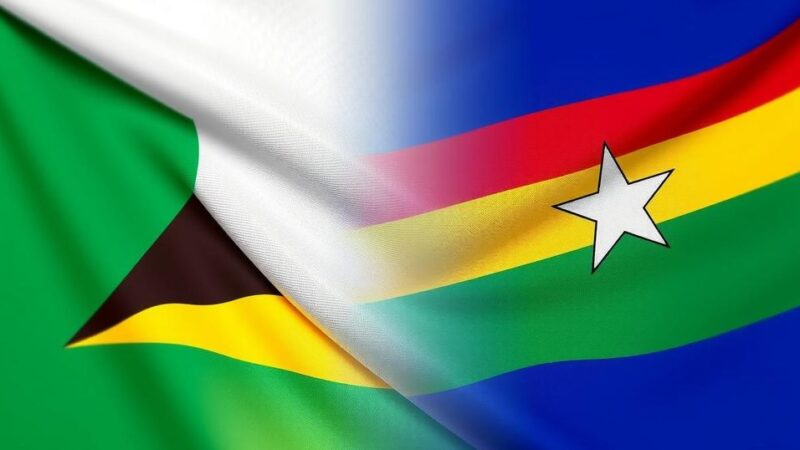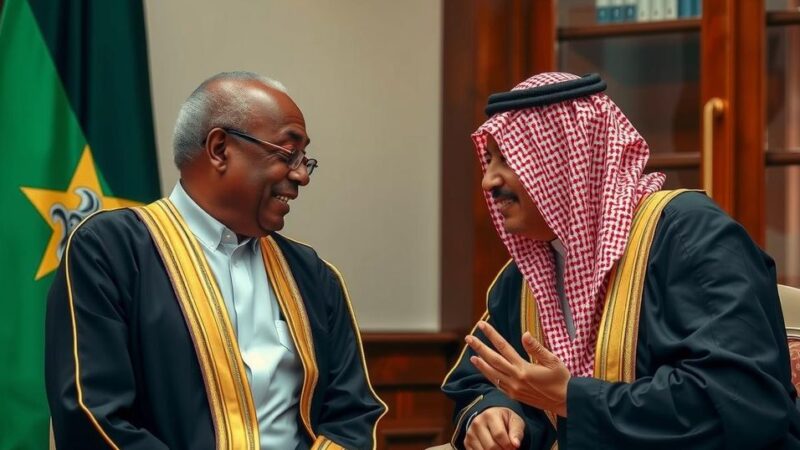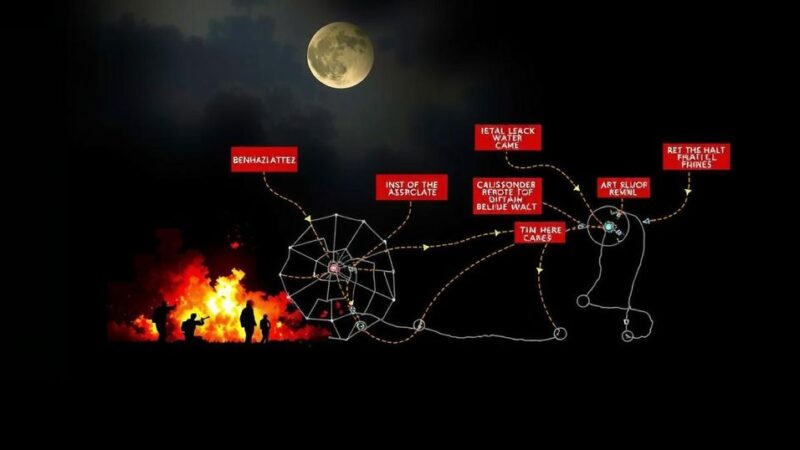In a ministerial meeting in Swakopmund, Namibia, on October 14-15, the Foreign Ministers of Namibia and South Africa declared their support for Cuba and Venezuela against unilateral sanctions, condemned Israel’s actions in Lebanon, demanded the lifting of sanctions on Zimbabwe, and addressed the situation in Western Sahara following a recent EU court ruling.
During a ministerial meeting held on October 14 and 15 in Swakopmund, Namibia, Foreign Ministers Peya Mushelenga of Namibia and Ronald Ozzy Lamola of South Africa expressed their solidarity with Cuba and Venezuela, both of which are grappling with significant economic hardship attributed to unilateral sanctions. The ministers specifically addressed the economic and commercial blockade imposed on Cuba by the United States, urging for an end to this longstanding policy that has endured for over six decades. Moreover, the meeting condemned Israel’s military actions in Lebanon, characterizing them as serious breaches of sovereignty and violations of international humanitarian law. The ministers called upon the international community, particularly the United Nations Security Council, to uphold and reinforce international legal standards. Additionally, the representatives from Namibia and South Africa demanded the immediate and unconditional removal of sanctions against Zimbabwe, which they argue impede the country’s socio-economic development and adversely affect the broader Southern African region. Furthermore, discussions included the situation in Western Sahara, where the ministers welcomed the European Court of Justice’s ruling from October 4, 2024, which recognized that the European Commission had violated the right to self-determination of the Sahrawi people. This meeting underscores the commitment of Namibia and South Africa to advocate for international law and support nations facing economic and humanitarian crises.
The geopolitical landscape involving Cuba, Venezuela, and other nations affected by unilateral sanctions reveals underlying tensions in international relations. The repercussions of such sanctions often lead to significant socio-economic challenges for affected countries. Namibia and South Africa, both of which have historical ties to anti-colonial movements and a philosophy espousing solidarity with oppressed nations, aim to leverage their positions in the Southern African Development Community to advocate for an end to unjust sanctions. Their recent meeting reflects a broader commitment to regional solidarity against perceived injustices inflicted through legal and economic measures that threaten national sovereignty across multiple nations, including Zimbabwe and the Sahrawi people in Western Sahara.
In summary, the recent meeting between the Foreign Ministers of Namibia and South Africa highlighted their collective support for Cuba and Venezuela in light of ongoing sanctions and economic challenges. The discussions spanned several critical topics, including calls for an end to unjust sanctions against Zimbabwe and recognition of the self-determination rights of Western Sahara. This engagement illustrates the importance of international cooperation and advocacy for justice and economic development in the face of unilateral measures that negatively impact sovereign states.
Original Source: www.plenglish.com






